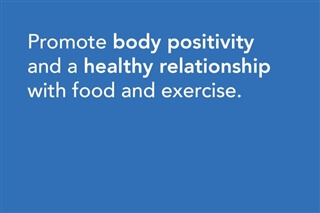Understanding eating disorders
Food is a fundamental part of our lives, not just as a source of nourishment but also as a cultural identity, an expression of heritage and a form of social interaction. However, for some individuals, the relationship with food is complicated by eating disorders, which can severely impact their physical health, emotional well-being, and social life.
What are eating disorders?
Eating disorders are silent yet profoundly complicated. They can be defined as persistent disorders associated with altered body perception and control of one's weight and shape. Often, they manifest in a variety of forms, including anorexia nervosa, bulimia nervosa, and binge eating disorder, each with distinctive characteristics and implications for physical and mental health while sometimes they are associated with other psychopathological conditions such as mood changes, anxiety, and personality disorders, among others.
What are eating disorders?
Eating disorders are silent yet profoundly complicated. They can be defined as persistent disorders associated with altered body perception and control of one's weight and shape. Often, they manifest in a variety of forms, including anorexia nervosa, bulimia nervosa, and binge eating disorder, each with distinctive characteristics and implications for physical and mental health while sometimes they are associated with other psychopathological conditions such as mood changes, anxiety, and personality disorders, among others.

Who is affected?
Eating disorders usually begin at a young age and are more common in girls than boys, with about 9 girls for every boy affected. However, there is an increase in male cases, especially among adolescents and preteens. Nowadays, even children as young as 8 or 9 years old are showing signs of these disorders, especially anorexia.
Recent studies conducted by the Italian Health Ministry show that eating disorders are becoming more and more common across Italy. In fact, there's been a 40% increase in cases between 2019 and 2021. In addition, it seems that it is harder for people to find the help they need in many parts of the country. That's why recognizing and understanding these conditions is the first step in creating a supportive environment.
What are the warning signs?
Typical alarming signs of eating disorders include:
- excessive concern about the body and its weight (excessive weight loss due to age and height)
- variation in food intake patterns (excessive chopping, eating too slowly, constant calorie counting)
- 'compensation' behaviours after eating (self-induced vomiting, use of laxatives, excessive exercise)
- very strict diets: extremely low in calories, not approved by health professionals
- social withdrawal, reduced interests, unstable mood
- uncontrolled binge eating and other dysfunctional behaviours (exhausting physical activity, taking laxatives or diuretics, relying only on diet foods, etc.).




How can you help?
Diagnosis and treatment of eating disorders can be particularly complicated. Therefore, it requires the collaboration of several specialists such as medical specialists, psychologists, psychotherapists, dietitians etc.
However, increasing awareness around the topic, being supportive and helping people accept the problem, can make a difference and, in some cases, make the treatment faster.
If you suspect that someone you know, a friend or a family member has an eating problem, letting them know you're here to listen, avoiding frustrations, assumptions or commenting on appearance as well as weight, and encouraging them to seek professional help might play a key role in their recovery process.
ARTICLES YOU MAY LIKE






